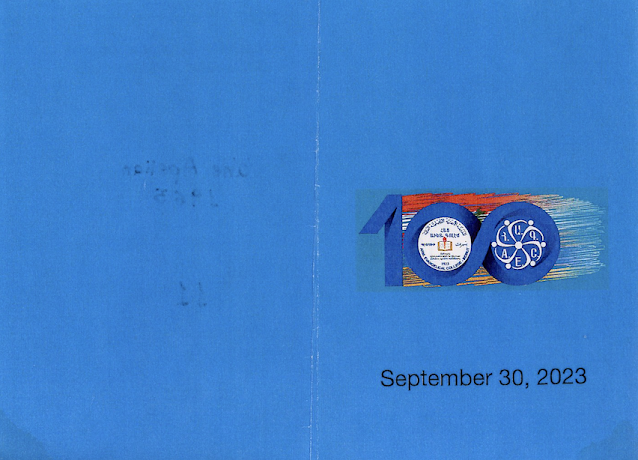Vahe H. Apelian
In the current issue of Keghart.com, Prof. Z.S. Andrew Demirdjian, who I believe is a psychologist or a sociologist, quotes from Abraham Lincoln who has said, “You cannot escape the responsibility of tomorrow by evading it today”. The prof. is most likely correct in tilting his article “ABANDONING ARTSAKH WILL HAUNT ARMENIANS FOR EVER”. As for me, I remain bewildered, perplexed, and puzzled.
What happened to Artsakh has no parallel in modern Armenian history that I know of. Nothing of this sort has happened in our tortured but, we thought of and were told, dignified history. I have read about the fall of Kars. I am not sure if there are parallels there. I do not know anything of substance about the fall and the abandonment of the historic Kars, a cradle of Armenian revolution. Even the Palestinian Nakba does not come close to the ill-fated experience of the Artsakh Armenians, although the underlying issue for both is the abandonment of their land and of dispossession. Those who are not familiar with the historic implication of the term may search for it. Quoting Wikipedia: “The Nakba, which means “catastrophe” in Arabic, refers to the mass displacement and dispossession of Palestinians during the 1948 Arab-Israeli war.”
A good segment of the Palestinians remains scattered in many neighboring countries in the Middle East, such as Lebanon, Syria, Jordan, Egypt and others. But they remain Palestinian refugees. Their host countries have not granted them citizenship. In our case, the Artsakh Armenians who abandoned Artsakh are Armenian nationals, citizens of Armenia. During the past three decades the successive governments of Armenian did not recognize Nakorno-Karabakh/Artsakh as a state. They did not annex Nagorno-Krabakh /Artsakh to Armenia. They did not negotiate with Azerbaijan the state of the self-termed Republic of Mountainous Karabakh/ Artsakh. But Armenia granted the Armenians of Nagorno-Karabakh citizenship and thus all the rights and privileges the citizens of Armenia have. The moment they abandoned Artsakh and moved to Armenia; they forfeited any legal claim. A point that Prof. Demirdjian ignores as he attempts to end his sober analysis with an optimistic note.
I remain bewildered, perplexed and puzzled because the recent torrential turn of event in Artsakh governance did not, even remotely hint of the possibility that what happened, could possibly happen. On the contrary, the change in governance of Artsakh ostensibly came about because the Arayik Harutyunyan led government was portrayed as too conciliatory and in tune with Nikol Pachinyan led government although Yerevan had distanced itself from Artsakh issue and repeatedly called for the Stepanakert to go to Baku and negotiate their state with the Azeri government. The ouster of the president Arayik was meant to convey the coming of a government that was not going to be swayed away easily by Azerbaijan threats.
In chronological order, this is what happened during those fateful 52 days, from August 7 to September 28.
August 7, 2023, Tavit Ishkanian was elected speaker of the Artsakh National Assembly.
September 1, 2023, Arayik Harutyunyan, the popularly elected president, resigned.
September 10, 2023 Samvel Shahramanyan was elected president by the Artsakh national assembly.
September 11, 2023, Samvel Shahramanyan gave his presidential inaugural speech to the national assembly. (http://vhapelian.blogspot.com/2023/09/from-arayik-to-savel-what-changed.html)
Armenian pundits in the Diaspora welcomed the change of Artsakh governance and one of its most ardent analysts likened it, in ARF newspapers, to a snow ball that will continue rolling down and take over or roll over Yerevan.
But..
September 17 -20, 2023, Artsakh capitulated and the exodus of the Armenians began, abandoning historic Artsakh that ceased to have its native Armenian inhabitants it had throughout history.
September 28, 2023, Artsakh President Samvel Shahramanyan signed a decree by which Nagorno Karabakh ceases to exist from January 1, 2024. A few days later, he was transferred to Armenia, but the three former presidents of Artsakh, as well as other state and military figures, were arrested/kidnapped and taken to prisons in Baku. All together seven of them now face the possibility of life imprisonment in Baku.

These seven Armenians are held in Baku prisons represent the deadlier phase of the enemy's war by land and air. The enemy has also resorted to and is waging a psychological war to amputate the nation's soul. The Armenian officials held in Baku prisons, in alphabetical order are: Davit Babayan – former Minister of Foreign Affairs of Artsakh, Arkady Ghukasyan – former president of Artsakh Republic, Arayik Harutyunyan – former president of Artsakh Republic, Davit Ishkhanyan – chairman of the National Assembly of Artsakh Republic, Davit Manukyan – former deputy commander of the Artsakh Armed Forces, general, Levon Mnatsakanyan – former commander of the Defense Forces, general, Bako Sahakyan – former president of Artsakh Republic, Ruben Vardanyan – former State Minister of Artsakh Republic.
We cannot be free until these citizens of Armenia are released from Azerbaijan prisons and transferred to the custody of the government of Armenia.
As a Diasporan, the following two principles, I held were re-enforced in me.
First. As a nation our destiny is tied to our statehood and our statehood is shaped by the citizens of Armenia, who elect the government that will govern them with their consent. Consequently, I continue to stand with the democratically elected government of Armenia and I am driven by what Stepan Piligian noted in an unrelated comment, “Simply put, if democratic institutions of Armenia are not supported in this transition, then what is the point of sovereignty?” Indeed so, what is otherwise the point of a sovereign republic, be it Republic of Armenia.
Second. As a Diaspora Armenian with dual citizenship, American and Lebanese. I accord the same courtesy and cordial reception to the American and Lebanese officials in another country, as I do to the Armenian officials outside their country, Armenia. Diaspora leadership needs to do the same and direct the youth to do the same, and apologize for not having done so.





















